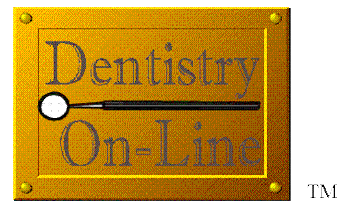
Opinion Column
The Subliminal Dentist
by Peter Thomson
In J G Ballard's 'The Subliminal Man', the doctor, 'Franklin', discovers that he has been replacing things such as his car, television, refrigerator, and cooker every three months. he stops to consider why and he can only come up with the answer that this is what society expects of him and that if he did not keep up in this way he would be letting other people down. Social mores have trapped him into doing what he really does not want to do. He is mortgaged and borrowed to the hilt, but society still expects him to spend more. The irony is that he has no time to enjoy any of the fruits of consumerism as he has to work long hours to pay for them.
As I read this short story I was hit by the strong sense of having been 'Franklin' myself as some point in the not too distant past. 'Franklin's' experience of life is very real to me. it reminded me of the days when I tried to earn œ37,000 per year bashing the NHS - this was my peer group and society expectation, this is what I should be doing, but I hated it. I never had the time or the energy to enjoy it, my family or my life and in the end it nearly destroyed my body and very nearly my mind.
Melanie Klein, working in London, noted in 1929 that there seemed to be no progress without pain. My feeling is that the most painful thing to deal with is truth, and as no-one likes pain how do we ever get around to dealing with truth.
In the UK the pain of society's expectations on its professional carers is ever increasing. The carers are trapped like 'Franklin' in a cycle of consuming more and more of themselves and paying for it by working harder and harder. A recent survey by Leicester Health Authority's employee assistance program assessed that in 5% of referrals to them the carers were either homicidal or suicidal in intent and a further 15% were just suicidal. That does not include the 24% tranche that were abusing substances (drugs, alcohol, solvents) or their families. These people were still working in the Health Authority. 'Franklin' is not in Ballard's futuristic fiction, he is with us now in British health care.
We have a choice, as health care professionals, to carry on down the road inflicting 'Franklinism' on the generations of carers to follow or to stop, reassess our personal contract with ourselves, and our patients. Then we will be in a position to create a health care system that balances professional and patient needs.
How?
We must stick a spoke in our treadmill and step off. My treadmill had a spoke stuck in it - I think myself fortunate. If we are to prevent 'Franklinism' we have to do some painful, fundamental thinking about what it is that we are doing and why. The paradox is, if dealing with the truth is painful and staying as we are is painful, which is the worst pain?
We can only feel that for ourselves, but not dealing with it or not acknowledging it will only destroy us.
So how well can the professional, on their own, in their own 12x12 little box deal with this? I feel that we need to help explore our pain and that is why I have retrained in counselling. I acknowledged that I needed help and sought it - someone to share my pain with, I thought. In fact my counsellor turned out to be someone who reflected my pain back to me in a way that enabled me to deal with it. in the end I opened my own door and exited my own box and became involved in a society in which there was balance.
This is what I offer as a counsellor. I will not take your pain away, but I will help you deal with it, for it is only when we take charge of ourselves that we can really start to function as members of our society.
My main interest is in Transactional Analysis - a model that looks at internal communications and injunctions. I work in a client centred way, empowering, not directing. The rest is up to you if you are willing to take responsibility for your actions.
*For more information on issues in this article, personal programs, training programs or leadership programs please call Peter Thomson on 01747 823880 if in the UK,(or prefix with the appropriate international dialling code if calling from outside the UK).
 Return to Dentistry On-Line Contents
Return to Dentistry On-Line Contents
Or if you would like further information on mental health issues
 Browse Psychiatry On-Line Contents
Browse Psychiatry On-Line Contents
![]() Browse Psychiatry On-Line Contents
Browse Psychiatry On-Line Contents